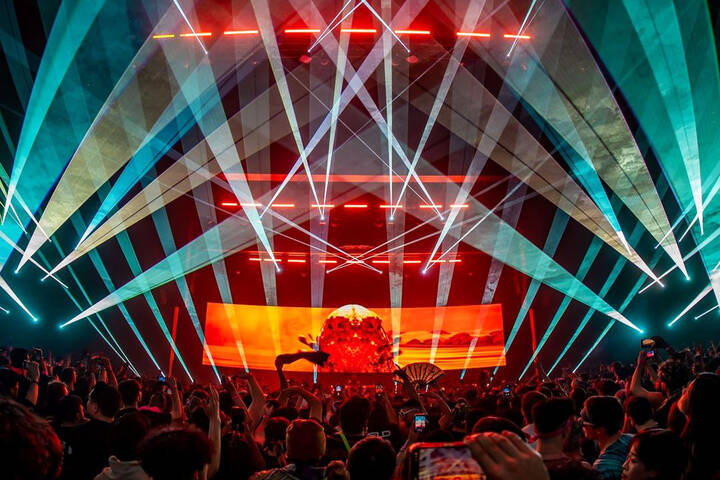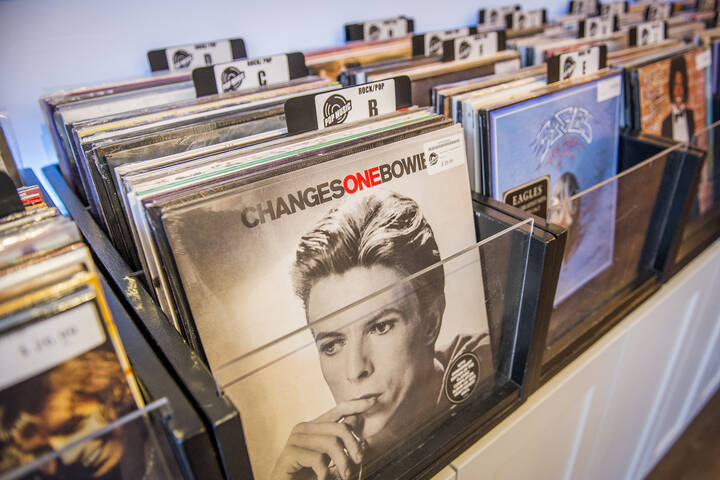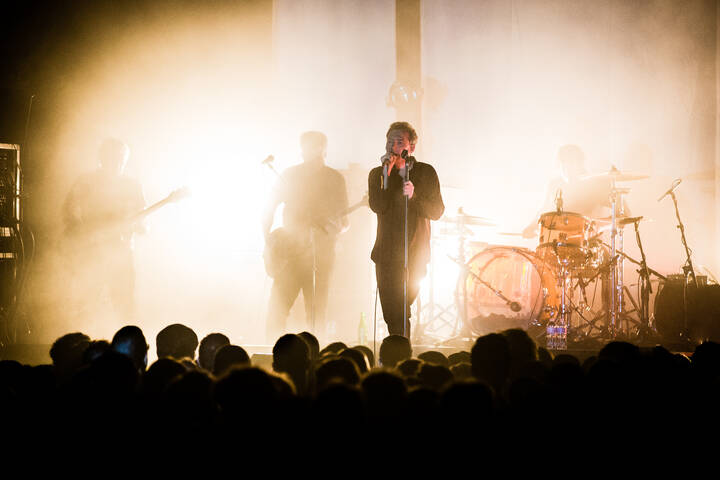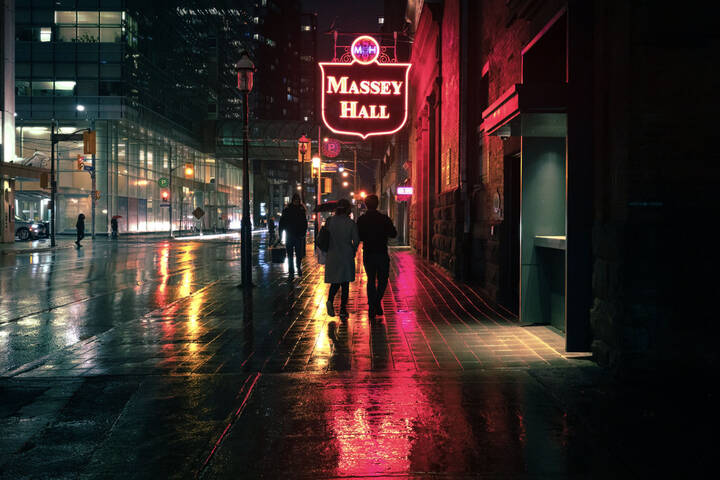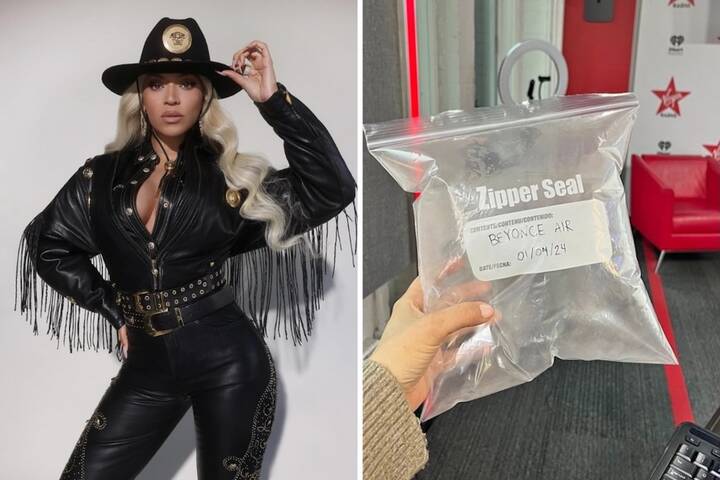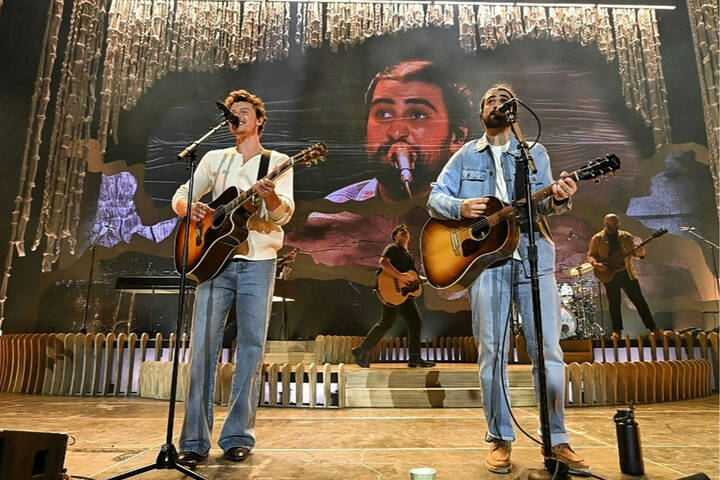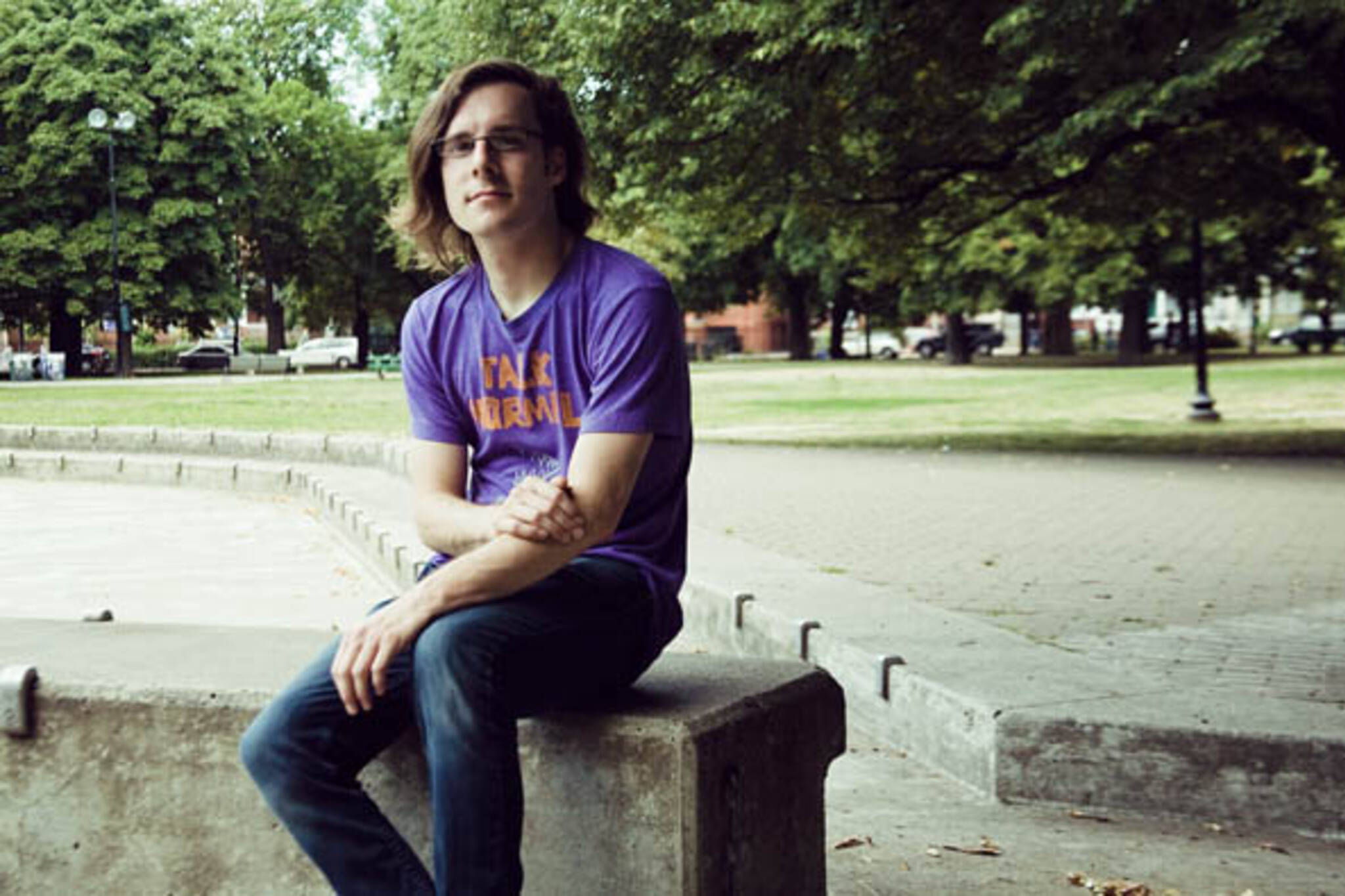
Tad Michalak brings the party to Toronto's east end
Tad Michalak has a knack for bringing people together. Whether he's getting bands from across the world to meet in loft spaces, coaxing west-end art lovers east of Yonge with the promise of music and a meal, or tempting record buyers of all ages to leave their comfort zones with Offerings Magazine, Michalak is all about building community in Toronto's music world.
In 2011, Michalak started Feast in the East, a monthly series in Toronto's east end which combines food (the feast) with music and art, hosting local musicians like Isla Craig and Absolutely Free. The series has taken off, and my best advice now is to go early, and dress light: bands playing the feast are often as out there as Toronto gets--think noise, improv and freak folk--but the shows are always packed with people.
Though Feast in the East might be Michalak's current claim to fame, the music loving east-ender has actually been promoting shows in Toronto since 2005 as Burn Down the Capital, booking artists such as Bill Orcutt, Keiji Haino, Nadja, Aids Wolf, Daedalus and Yamantaka // Sonic Titan at venues like The Boat, Sneaky Dee's, The Music Gallery and The Garrison, as well as artist-run venues like the Dickens Street Theatre, Double Double Land and Placebo Space. His bills vary widely in genre but focus on the experimental and avant-garde--which might be why Burn Down the Capital is still under your radar.
We met up with Michalak--who also owns one of the coolest bikes in the city--to talk about Toronto's blossoming underground beneath the underground, and his hopes of bridging the gaps between Toronto's music scenes, and its music lovers.
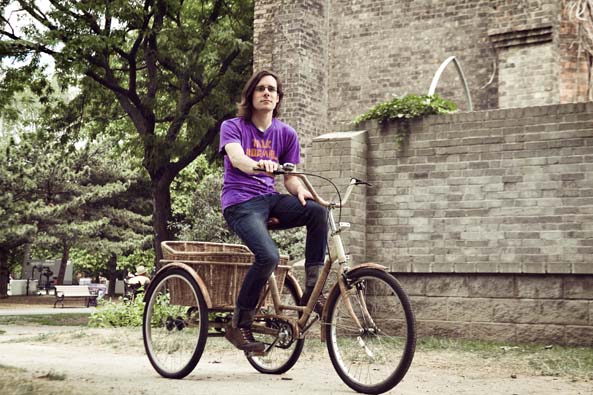
How did Burn Down the Capital begin?
Tad Michalak (TM): I'd been putting on shows since high school. As my tastes in music changed, I found a lot of bands I wanted to see weren't coming to Toronto. I thought maybe they didn't have anyone to book shows for them or they were afraid to cross the border.
Looking back, this was a good learning experience but sort of foolish: I offered to book a tour for this [American] bass player Trevor Dunn. We had a really bad time in Ottawa, which is where the name comes from. That was a huge learning curve: from booking punk shows for friends to booking a bass and harp, avant jazz or avant chamber music duo.
It's a very different audience and just a very different type of music. It's so marginalized--while punk is pretty raw, and has a beat, and appeals to everyone from teenagers to dads. After booking the tour, I just started booking other shows since I'd done it already and had a bit of a feel for it, and it snowballed from there.
Are you from Toronto?
I was born in Hamilton and grew up in the suburbs in Burlington. Both places had a vibrant punk scene, and I spent a lot of time in Toronto as well.
Do you know [Toronto promoter] Mark Pesci? We interviewed him a couple of weeks ago, and he's from Hamilton too.
That's interesting, I feel like Hamilton breeds pretty resourceful people. It's a really working class, blue-collar town and it breeds a strong DIY ethic--in a way it's sort of sink or swim.
How did you get involved with the Toronto music scene, particularly the experimental scene?
It was what I was interested in. I'd been going to shows here for a while, and as my music tastes changed, I was attentive and found out about bands and reached out to them, like, "oh hey I saw your band."
It's an easy scene to get involved with because it's small. It seems daunting at first, but a lot of people have common interests, especially with music that's as far out as noise music, the community is tight knit and everyone is hungry and happy to find other people who are into this really obscure music. A lot of people in Toronto come from other communities where there aren't really any fans of that kind of stuff.
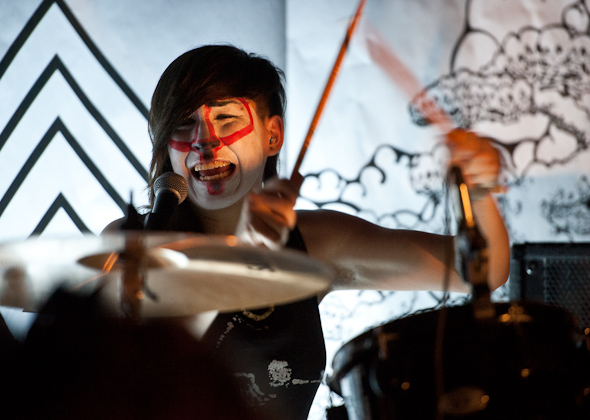
Do Burn Down the Capital events and artists have a certain sound, or ethos? How do you find the artists you book, and what makes BDTC shows special?
It's mostly curated by my personal tastes, and I also get a lot of people reaching out to me for shows. There's no specific criteria for a show that I'll put on, but it's definitely within the realm of experimentation. If they're within any genre and experimenting, especially if they're doing something more avant-garde, I'll go out on a limb and put it on.
I find the artists through a huge web at this point. Once you've been booking shows for a while--and I'm sure Mark [Pesci] can attest to this--your name gets passed around, if you're reliable and put on good shows. I also work with a bunch of different agents.
99% of the shows I do I'll make a poster, then go out and poster myself, and I try to curate bills that are as diverse as possible. You're not going to see three free jazz bands. Going to show as a listener, I don't want to see three bands that sound the same.
I also try as often as possible to book at a more alternative space, and to have shows that are all ages--even though the amount of kids under 19 who are coming to shows is almost non-existent.
Why do you think there isn't a 18 and under scene in Toronto?
I think it's because the scene has been cut off to them for so long, especially in Toronto, it's difficult to foster a community for kids. The only shows they have access to are punk shows or something at the ACC, they don't have a gateway into this community even if they're interested in this kind of music. Ryan McLaren has done some work with his All Caps series, but even he has said the number of kids that come out is minimal.
What goes into booking a BDTC show, and what have been the highs and lows of promoting DIY shows and booking artists with niche audiences in Toronto ?
A lot of work. Essentially it's a lot of coordination and organization of people, finding venues and other bands to play, making sure that everyone knows what's happening. 95% of the touring artists I book are not from Canada, so there's the added task of doing paperwork to get bands across the border. Also promotion: making sure the press knows what's going on, getting posters up, trying to spread the word.
There's always really low points when you bill a show and for whatever reason--there's a thousand different factors--not a lot of people come out. Especially with more experimental music, the audiences are sometimes not that big. One of the best things that can happen at shows is when you've brought all these bands together and they form real connections. It's important for these people to get to know each other: they can help each other out, expand each other's fan bases, and exchange ideas.
Also, putting on shows for bands that you're really psyched about. I put on a show for Faust a while back which was both a disaster and exciting. I've wanted to see that band for a long time. We had some power issues which led to them playing acoustic, and that was a unique scenario. At the time I was really stressed out, but it was a good experience.
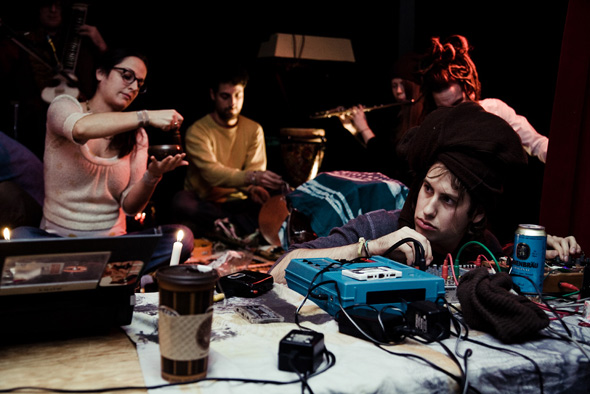
How is the experimental scene in Toronto different than other cities? What are you excited about right now, and what would you like to see change?
The big difference between Toronto and Montreal is Toronto is a business city. In Montreal a lot of people are there to make art, and have more free time to see music. Rent is cheaper and the provincial support system is different, we don't have that here as much. Our scene is just not as big.
It's also a very different than a scene you'd find in the US. There are fewer touring bands, simply because of the border and Canadian geography. That also keeps a lot of bands in Toronto--they can't expand like they could if the borders were open. So it keeps a lot of what is here, here, but it also lets us incubate in this environment without a ton of ideas coming in from other sources, so it's a positive and a negative.
Toronto-wise, the output of Wyrd Visions/Colin Bergh really stands out as exciting to me, and Andrew Zukerman's solo Fleshtone Aura stuff, really interesting collage music. This isn't necessary Toronto based, but Drainolith from Montreal--Alex Moskos of Aids Wolf--he just put out a record that is actually fantastic.
One thing I want to see change is a bit more communication between different scenes in Toronto. There are a lot of people working toward similar goals that aren't communicating as much as they could be: there is not as much knowledge and resource share as there could be. The weirder more experimental rock and punk scene doesn't talk as much as they could to the noise scene, the improv crowd doesn't talk to the weird folk people, even within the noise scene there's a pretty obvious break between the more goofball sort of stuff and the power electronics scene. That was a major impetus for Offerings Magazine.
Are you an artist yourself? Do you have a day job?
I do have a day job, I work in television doing props and set dressing. I also work for an interior designer. It leaves my schedule somewhat malleable for putting on shows. I also book tours for bands sometimes.
I guess I consider myself an artist: in the beginning I started making posters myself so I could just pay the printing costs, and I found I really enjoyed it. Now I have a poster for almost every show I've put on.
You're a one person operation booking a lot of under the radar shows for limited audiences and exposure. What keeps you going?
I really care about the music, as cheesy as that may sound. A lot of times I feel if I don't do it, there's not a lot of people who will. I really want to see these bands and make these connections and grow the web. I want bands to have a positive time in Toronto, too--I think there's real value in that.
Can you tell me more about Offerings Magazine?
Offerings is a free monthly music listing and art newspaper, influenced by New York's Showpaper, but it also has feature articles, record reviews, interviews with artists, comics and sometimes recipes.
The first idea we had was to start a venue, but it's a daunting task. The second idea was this newspaper that would make people more aware of what was going on in Toronto: coverage that was lacking especially in the experimental scene. We try to cover as much independent and avant-garde music as we can, and spotlight bands we think are working hard in Toronto.
Our hope is that it's a gateway to people who haven't got an in to this scene. We cover everything from experimental garage to noise to chamber music and free jazz.
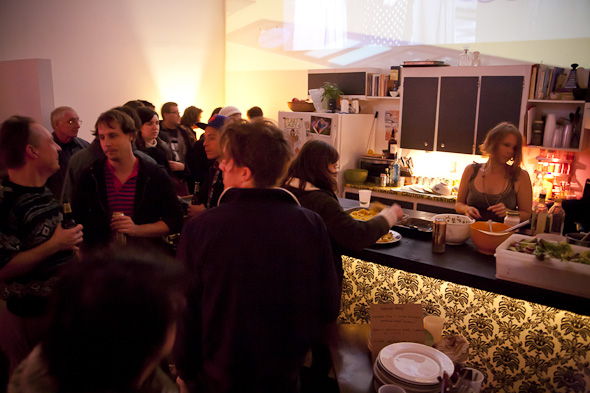
You book shows all over Toronto, but for the past year you've also thrown an event each month in the east end called Feast in the East. How did that get started?
I've lived in the east for a long time now, and Neil Rankin and I always saw each other in the west end until we realized we live close to each other. We got talking about how we wanted to see more shows in the east. There's a lot of people traveling west to see music, go to art shows, and get their cultural fix, and we thought why can't that stuff happen here?
To get people from the west to come east--not the only goal of the series obviously--we needed some other element. So adding the idea of food and installation art seemed like it would entice people to bike from Lansdowne, and it did! Which is pretty cool.
It's a really positive space, and people can see and feel the amount of effort in the curation of the bands, the art, and the food. The meals have only been getting better, though I take minimal responsibility for that: the chefs we've had come in and cook for us have been amazing. Myself, Neil and Cameron Lee, who curates the art, are always so amazed by the food.
This month is our 15th feast. In just over a year we've definitely seen the growth in the community. We have regulars, and there's always someone new from the community who's really surprised & psyched about it.
Do you have any plans to branch out with Burn Down the Capital, like say starting a label or venue?
I thought about starting a label for a long time, but I think there are a lot of people who run labels right now who are doing a better job than I could; I'd rather leave the record releasing to other people who are more adept at it.
If I had the opportunity to start a venue I would, it's a big investment. It's difficult to find a space in this city. The trick is finding a place where you can be loud; no one wants live noise. It's also a ton of work just to break even; you have to sell liquor, but to do that legally is really difficult.
What's the best way for fans and artists to reach you?
The best way is through email, burndownthecapital@gmail.com. I have a website as well.
RAPID FIRE QUESTIONS
Favourite Brunch Spot? Pulp Kitchen.
Where do you get your caffeine Fix? Mercury.
East or west side? East.
Favourite Toronto band/performer? That's an impossible question to answer!
Favourite Record store? Discovery.
Favourite local album from this year? Fleshtone Aura - On Rusticated Slant and Sandro Perri - Impossible Spaces
You can check out the fifteenth Feast in the East Sunday July 15th at Polyhaus, featuring Absolutely Free, Tenderness, Zacht Automaat and Lantern, as well as art by Augustina Saygnavong & Danielle Bessada and a free Summer Curry dinner by Amanda Martin.
Profile photos by Denise McMullin. Feast in the East photo by Jesse Milns, Yamantakasonic photo by Christian Bobak
Latest Videos
Latest Videos
Join the conversation Load comments
